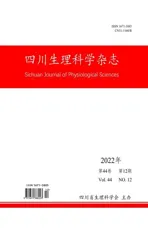Dupilumab in Adults and Adolescents with Eosinophilic Esophagitis
2023-01-21
Background: Dupilumab, a fully human monoclonal antibody, blocks interleukin-4 and interleukin-13 signaling, which have key roles in eosinophilic esophagitis.
Methods: We conducted a three-part, phase 3 trial in which patients 12 years of age or older underwent randomization in a 1: 1 ratio to receive subcutaneous dupilumab at a weekly dose of 300 mg or placebo (Part A) or in a 1: 1: 1 ratio to receive 300 mg of dupilumab either weekly or every 2 weeks or weekly placebo (Part B) up to week 24. Eligible patients who completed Part A or Part B continued the trial in Part C, in which those who completed Part A received dupilumab at a weekly dose of 300 mg up to week 52 (the Part A-C group); Part C that included the eligible patients from Part B is ongoing. The two primary end points at week 24 were histologic remission (≤6 eosinophils per high-power field) and the change from baseline in the Dysphagia Symptom Questionnaire (DSQ) score (range, 0 to 84, with higher values indicating more frequent or more severe dysphagia).
Results: In Part A, histologic remission occurred in 25 of 42 patients (60%) who received weekly dupilumab and in 2 of 39 patients (5%) who received placebo (difference, 55 percentage points; 95% confidence interval [CI], 40 to 71; P<0.001). In Part B, histologic remission occurred in 47 of 80 patients (59%) with weekly dupilumab, in 49 of 81 patients (60%) with dupilumab every 2 weeks, and in 5 of 79 patients (6%) with placebo (difference between weekly dupilumab and placebo, 54 percentage points; 95% CI, 41 to 66 [P<0.001]; difference between dupilumab every 2 weeks and placebo, 56 percentage points; 95% CI, 43 to 69 [not significant per hierarchical testing]). The mean (±SD) DSQ scores at baseline were 33.6±12.41 in Part A and 36.7±11.22 in Part B; the scores improved with weekly dupilumab as compared with placebo, with differences of -12.32 (95% CI, -19.11 to -5.54) in Part A and -9.92 (95% CI, -14.81 to -5.02) in Part B (both P<0.001) but not with dupilumab every 2 weeks (difference in Part B, -0.51; 95% CI, -5.42 to 4.41). Serious adverse events occurred in 9 patients during the Part A or B treatment period (in 7 who received weekly dupilumab, 1 who received dupilumab every 2 weeks, and 1 who received placebo) and in 1 patient in the Part A-C group during the Part C treatment period who received placebo in Part A and weekly dupilumab in Part C.
Conclusions: Among patients with eosinophilic esophagitis, subcutaneous dupilumab administered weekly improved histologic outcomes and alleviated symptoms of the disease. (Funded by Sanofi and Regeneron Pharmaceuticals; ClinicalTrials.gov number, NCT03633617.).
